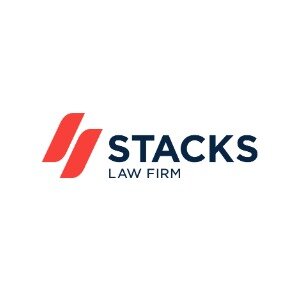Best Trusts Lawyers in Forster
Share your needs with us, get contacted by law firms.
Free. Takes 2 min.
List of the best lawyers in Forster, Australia
About Trusts Law in Forster, Australia
Trust law in Forster, Australia is based on the common law legal system, similar to what you find elsewhere in Australia. A trust arrangement essentially allows a third party, known as a trustee, to hold and manage assets on behalf of a beneficiary. Trusts can encompass numerous types, such as discretionary trusts, unit trusts, testamentary trusts and family trusts to name a few. They serve various purposes including asset protection, wealth management, tax planning and estate planning.
Why You May Need a Lawyer
Understanding the complexity of trust laws and navigating through them can be a daunting task. Individuals often require legal help when setting up a trust, managing a trust, resolving disputes concerning a trust and understanding tax obligations related to a trust. Dealing with these tasks without professional help can result in legal issues or potential financial loss.
Local Laws Overview
Trust law in Forster is governed by the laws of New South Wales (NSW) and applicable Commonwealth laws. This includes the Trustee Act 1925 (NSW), which sets out the fundamental duties and powers of trustees, and the Income Tax Assessment Act 1936 (Cth), which governs taxation of trusts. Understanding these laws is crucial to ensure the proper establishment and operation of a trust.
Frequently Asked Questions
1. Can I serve as my own trustee?
Yes, an individual can serve as their own trustee. However, it's important to understand that being a trustee carries significant duties and responsibilities.
2. What are my responsibilities as a trustee?
Trustees are tasked with managing the trust in accordance with the terms of the trust deed and the law. This includes investing the trust's assets, accounting for all income, deductions and credits, and distributing the trust's assets to the beneficiaries as required.
3. How is a trust terminated?
A trust can be terminated by fulfilling the purpose of the trust, through the agreement of all beneficiaries, by a court order, or upon the occurrence of a certain event as specified in the trust deed.
4. Are all assets of a trust taxed?
The taxation of a trust depends on several factors including the type of income the trust earns and how that income is distributed to the beneficiaries.
5. Can a trust be altered after setup?
Generally, a trust deed contains provisions that allow changes to the trust. However, certain changes could lead to resettlement of the trust, which may have serious tax and stamp duty implications.
Additional Resources
For individuals looking for more information on trusts, resources like the Australian Tax Office website, The Law Society of New South Wales website, or publications from the Department of Fair Trading NSW can be helpful.
Next Steps
If you think you need legal advice regarding trusts in Forster, it's important to contact a solicitor who specializes in trust law. This will ensure you receive accurate advice tailored to your personal circumstances.
Lawzana helps you find the best lawyers and law firms in Forster through a curated and pre-screened list of qualified legal professionals. Our platform offers rankings and detailed profiles of attorneys and law firms, allowing you to compare based on practice areas, including Trusts, experience, and client feedback.
Each profile includes a description of the firm's areas of practice, client reviews, team members and partners, year of establishment, spoken languages, office locations, contact information, social media presence, and any published articles or resources. Most firms on our platform speak English and are experienced in both local and international legal matters.
Get a quote from top-rated law firms in Forster, Australia — quickly, securely, and without unnecessary hassle.
Disclaimer:
The information provided on this page is for general informational purposes only and does not constitute legal advice. While we strive to ensure the accuracy and relevance of the content, legal information may change over time, and interpretations of the law can vary. You should always consult with a qualified legal professional for advice specific to your situation.
We disclaim all liability for actions taken or not taken based on the content of this page. If you believe any information is incorrect or outdated, please contact us, and we will review and update it where appropriate.








